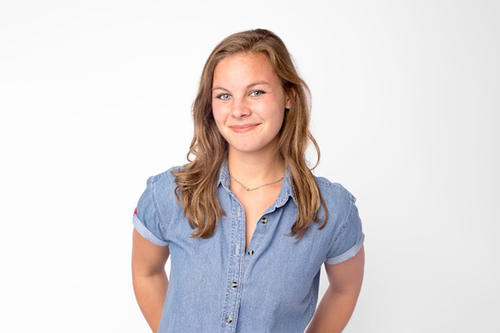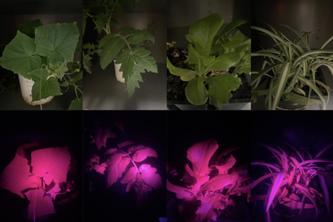
Elleni Paulson is the first graduate of the U of M College of Continuing and Professional Studies’ new Applied Sciences Leadership master’s program. The AScL degree is a combination of two graduate certificates: Integrated Food Systems Leadership (IFSL) and Leadership for Science Professionals.
This type of educational option is called a stackable credential, which takes one program (or micro-credential) and stacks it with another to create a higher-level credential. It offers a convenient way for students to gain skills in stages, rather than having to invest in a long-term program all at once. The degree is also offered completely online for maximum flexibility for working professionals.
For Paulson, one of the draws of the IFSL certificate was the cohort model, which allowed her to collaborate with students from other fields.
“Once in the cohort, I quickly realized that we had a lot to offer each other,” she says. “Relying on a cohort was essential in helping me understand certain projects and how the work we were doing could carry through to food systems.”
Paulson joined the program while employed as a public relations specialist with Colle McVoy, where she worked closely with agriculture companies that build connections between farmers and food consumers.
While researching graduate programs, she saw that many focused on just one aspect of the food system or the science behind a niche aspect.
Paulson was drawn to the IFSL certificate because it provided the broad food systems foundation that she was seeking, while the business-related courses in the master's program bolstered her leadership and management expertise.
“I have a relative lack of experience in food systems,” she says, “so I felt it would be helpful to continue on to that master’s with a science emphasis.”
For her capstone project, Paulson created a podcast that looked at broadband internet access for people in rural America. She found that many consumers in urban, better-connected areas were interested in sustainable farming methods without realizing that a lot of those practices require farmers to have a strong online connection.
Without that connectivity, she says, “not only do farmers not know about some of the technologies, but they can't use them because they can't upload their field data to the cloud, and they can't access other farmers’ data.”
For Paulson, this simple disconnect highlighted the disparity between the information shared with consumers and food producers.
"We really have to consider what our farmers have been telling us over the years about food, food systems, and food production and what consumers hear all the time.”
Her goal, whether in advertising or another field, is to improve this communication so that all parties have the same knowledge and can make informed decisions. This is especially important, she says, in relation to sustainable food production and issues that tend to get a lot of media attention, like genetically modified organisms and agricultural water use.
“The more that I talked to people who are in food distribution, production, or regulation, the more I realized how much I didn't know. So that led me into exploring new ideas, finding new people to connect with, and new holes in my own knowledge that I could fill.”
-------
This story was adapted from the College of Continuing and Professional Studies.
- Categories:
- Agriculture and Environment





